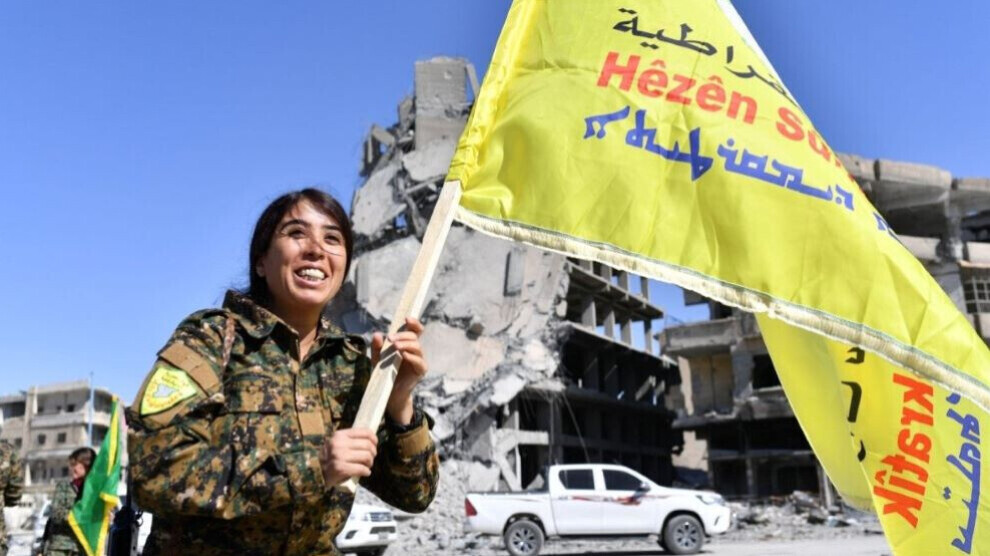Five years ago the liberation of Raqqa
Five years ago, Raqqa was freed from IS domination. The city, located about 200 kilometers west of Aleppo, has since been rebuilt. The previous three years of reign of terror have left deep traces.
Five years ago, Raqqa was freed from IS domination. The city, located about 200 kilometers west of Aleppo, has since been rebuilt. The previous three years of reign of terror have left deep traces.

On 17 October 2017, the Syrian Democratic Forces (SDF) declared to have ended Islamic State rule in Raqqa.
After the Iraqi city of Mosul was occupied by the Islamic State in 2014, the jihadists marched into Raqqa, one of the largest cities in Syria, with the weapons captured there.
The Al-Qaeda group Jabhat al-Nusra and the so-called Free Syrian Army (FSA) abandoned the city. A little later, Raqqa was named the capital of the "ISIS Caliphate" and covered with a reign of terror oriented on the Salafist interpretation of Sharia. From Raqqa, ISIS gradually took over many other Northern Syrian cities and turned its attention to Kobanê in September 2014. The Islamic State attacked the city on three fronts but met with unparalleled resistance. In Kobanê, the terrorist militia suffered its first defeat and was from then on pushed back bit by bit to its center Raqqa.
On 6 June 2017, the Syrian Democratic Forces launched an offensive to liberate Raqqa and, after five months of fierce fighting, ended ISIS rule there on 17 October. The declaration for the liberation of the city was made by the Women's Defense Units (YPJ), which were fighting on the front line against ISIS. The declaration was announced to the whole world in Al-Naim Square, where the Islamic State had carried out public executions.
The administration of the liberated city of Raqqa was handed over after a short time to a civil council already founded in April in Ain Issa. A large part of the city was destroyed by ISIS and during the liberation offensive. Reconstruction was hampered above all by the booby traps left behind by ISIS. At the same time, covert cells of ISIS continued to carry out attacks. Today, according to information from security circles, there is relative calm and stability in the city. Mahmut al-Said, who belongs to the management level of internal security, emphasizes that this was a very difficult process: "First, mines and explosive devices were cleared. Then the cells of ISIS and more recently those of the Turkish state and government in Damascus had to be prosecuted".
The Arab tribes from the region played an important role in the social reconstruction by the civil council. With the beginning of the Turkish invasion in October 2019 in Serêkaniyê (Ras al-Ain) and Girê Spî (Tal Abyad), cells that had continued to exist in Raqqa were also reactivated. Some of them belonged to the IS, while others were under the control of the Turkish state and the jihadists it recruited. On October 22, 2019, armed units of the Syrian government were stationed on the Turkish border as a result of an agreement between Russia and Turkey. After that, the cells of the Assad regime also became active in the region.
The common goal of these cells, commanded from different centers, is to destroy security and stability in the region. To this end, attacks were carried out in Raqqa on members of the civil council, politicians and tribal elders.